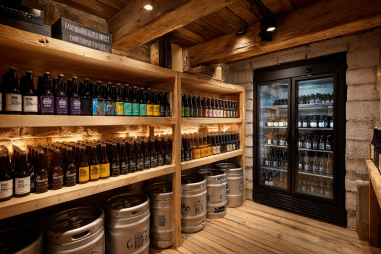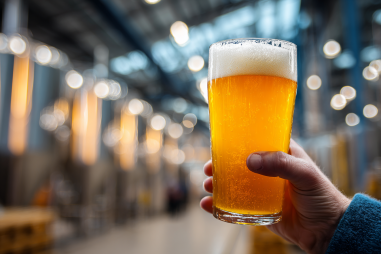The Czech Republic is renowned worldwide for its exceptional beer, particularly the dark lager that holds a special place in the hearts of beer lovers and brewers alike. Steeped in centuries of tradition, Czech dark lager brewing is more than just a method; it is a cultural heritage passed down through generations that continues to define the identity and taste of Czech beer. This article delves into the rich brewing traditions of the Czech Republic, exploring the history, techniques, craftsmanship, and how these elements remain vital even as modernization influences the industry.
History of Brewing Traditions in the Czech Republic
The story of beer brewing in the Czech Republic dates back over a thousand years, with the first documented evidence appearing around the 10th century. Beer quickly became a staple of Czech culture, with monasteries and local communities perfecting brewing methods over time. The town of Pilsen (Plzeň) became a particularly influential brewing center in the 19th century when the world-famous Pilsner lager was first produced in 1842.
While Pilsner lager gained international fame, the Czech dark lager has a deep-rooted history of its own. These darker brews were traditionally favored in rural areas and were known for their rich, robust character and slightly sweeter profiles compared to their golden counterparts. Through wars, political changes, and the evolution of the brewing industry, Czech dark lagers remained a cherished tradition, reflecting the local ingredients and craftsmanship that define Czech beer culture.
Traditional Brewing Techniques for Dark Lager
The brewing of Czech dark lager is a meticulous process that requires precision and patience. Brewers rely on traditional methods that emphasize natural ingredients and slow fermentation processes to achieve the distinctive earthy flavors.
Key elements of traditional Czech dark lager brewing include:
- Malt Selection: Czech dark lagers are brewed primarily with roasted malts and specialty malts, which give the beer its characteristic dark color and caramel, chocolate, or coffee notes.
- Saaz Hops: A signature ingredient, Saaz hops are used for their mild, earthy aroma and subtle bitterness that balances the sweetness of the malt.
- Open Fermentation: Many traditional Czech brewers still use open fermentation vessels that encourage natural yeast activity, resulting in a more complex flavor profile.
- Low-Temperature Lagering: The beer is aged at low temperatures for several weeks or months, allowing it to develop clarity, smoothness, and depth of flavor.
These time-honored practices ensure that each batch of Czech dark lager possesses a unique balance of malt sweetness, hop bitterness, and smooth finish.
Role of Craftsmanship and Family Breweries
Much of the strength behind Czech dark lager brewing lies in the craftsmanship passed down within family breweries. Brewing is not merely a commercial activity but an art form deeply woven into the lives of many Czech families. These breweries pride themselves on maintaining authenticity and quality by adhering to generational recipes and methods.
Craftsmanship is evident in every step, from the careful selection of local ingredients to the masterful control of fermentation and maturation. Many family breweries are small to medium-sized operations, favoring hands-on techniques over mass production. This devotion to craft ensures that each bottle of dark lager reflects a blend of tradition, passion, and skill.
Brewing Festivals and Cultural Heritage
In the Czech Republic, beer brewing is much more than production—it is a vibrant cultural tradition celebrated through numerous festivals and events.
One prominent example is the annual Pilsner Fest in Plzeň, which, while primarily celebrating Pilsner beers, also highlights the region’s broader brewing heritage including dark lagers. Other local festivals often feature tastings, brewery tours, and storytelling sessions where veteran brewers share their knowledge and history.
These events play a crucial role in preserving the cultural heritage by fostering community spirit, educating new generations about brewing traditions, and promoting Czech beer on a global scale.
Impact of Modernization on Traditions
Modern technology and globalization have undeniably influenced brewing practices worldwide, and the Czech Republic is no exception. Large-scale breweries have adopted automated systems to increase efficiency and output, sometimes at the expense of traditional methods.
Despite these changes, many Czech dark lager producers have embraced modernization cautiously, carefully integrating new techniques that enhance quality without compromising tradition. For instance, improved refrigeration and filtration methods help ensure consistent quality while maintaining the authentic taste. Moreover, the craft beer movement has sparked renewed interest in traditional brewing, encouraging small breweries to preserve and promote their heritage.
How Traditions Guarantee Quality and Taste
The longevity of Czech dark lager brewing traditions serves as the backbone of its high-quality standards. The use of local ingredients like malted barley and Saaz hops, combined with the slow fermentation and lagering processes, are vital to achieving the beer’s distinctive flavor and smooth texture.
Additionally, the expertise of brewers who have inherited the craft over generations allows them to make subtle adjustments and maintain consistency. The deep respect for detail—from water quality to fermentation temperature—ensures that Czech dark lagers are not just beverages but a testament to a refined brewing art.
Future Prospects for Czech Dark Lager Brewing
Looking ahead, Czech dark lager brewing appears poised for a promising future that blends respect for tradition with innovation. Younger brewers are entering the industry with fresh enthusiasm and new ideas while honoring their heritage.
Efforts are underway to promote sustainability within brewing practices, such as utilizing renewable energy sources and reducing water consumption, which align with traditional values of quality and natural production. Additionally, expanding international interest in craft and heritage beers is providing Czech dark lagers with new markets and opportunities for growth.
The continued support from local communities, festivals, and family breweries ensures that Czech dark lager will remain a celebrated national treasure for generations to come.
In essence, Czech dark lager brewing traditions represent a harmonious blend of history, skill, and culture. They have weathered the changes of time through careful preservation and passionate craftsmanship, creating beers that connect people to their rich past while enriching the global beer landscape today.







